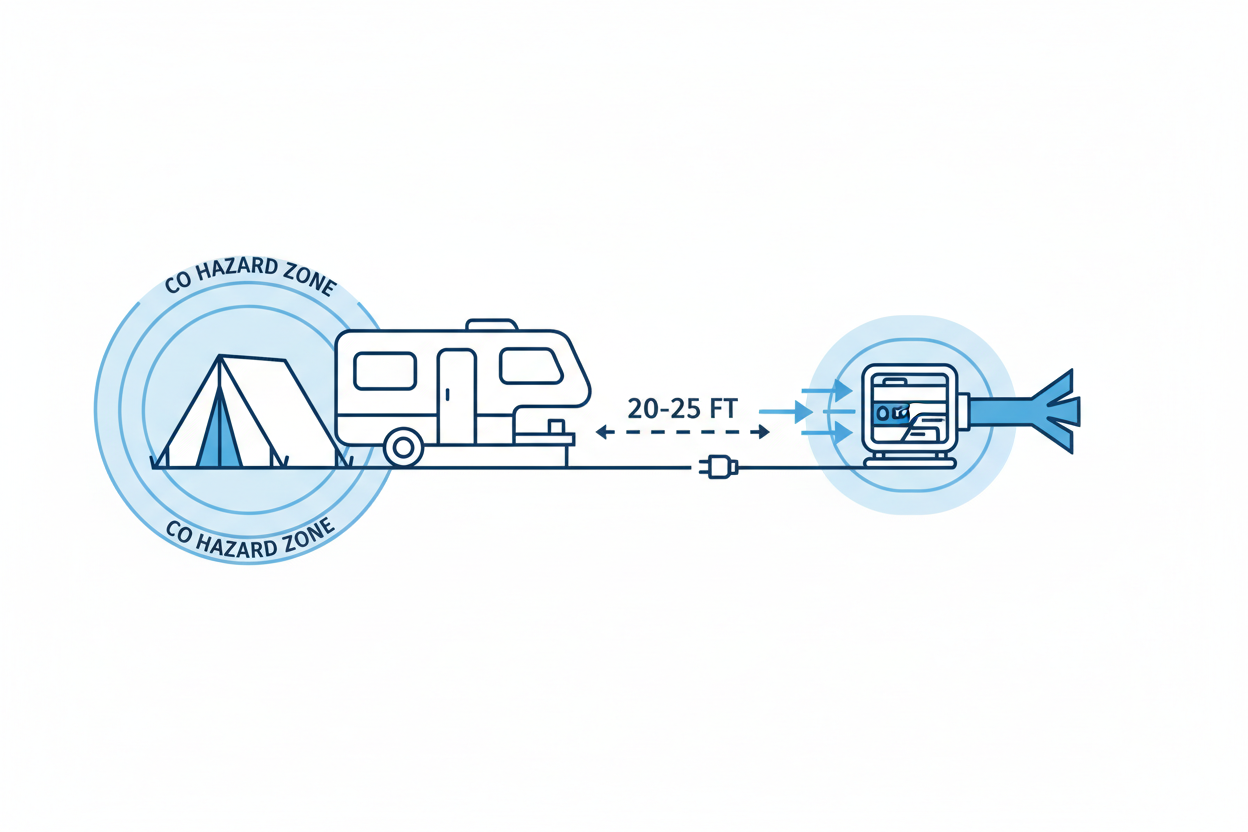How Far Should a Generator Be From a Tent or Campsite?
Proper generator placement is essential for campsite safety. Distance reduces carbon monoxide risk, lowers noise, and keeps exhaust away from sleeping areas.
Understanding safe placement guidelines helps campers maintain a comfortable and secure setup.

Recommended Generator Distance
Generators should always be placed at least fifteen to twenty-five feet from tents and sleeping areas. This distance reduces carbon monoxide exposure and keeps exhaust away from entrances.
Many campgrounds follow similar guidelines to ensure safe overnight operation.
- 10 feet: too close for safe ventilation
- 20 feet: recommended minimum for tents
- 25 feet: ideal for nighttime operation
Why Distance Matters
Distance helps prevent carbon monoxide accumulation near enclosed spaces. Generators produce invisible exhaust that can drift toward tents or vehicles.
Wind direction and terrain affect how fumes move across a campsite.
- CO spreads quickly in still air
- Downwind placement increases risk
- Elevation can change airflow patterns
Reduce Noise Through Placement
Distance is also the simplest way to reduce perceived noise. Doubling distance significantly lowers generator sound inside tents and shelters.
Soft ground helps absorb vibration and reduces overall noise.
- Place generators behind natural barriers
- Use grass or soil for better damping
- Angle exhaust away from sleeping areas
Safe Cord Management
Long outdoor-rated cords allow flexible generator placement. Proper routing prevents tripping hazards and keeps cords away from cooking areas.
Avoid direct tension on connectors to maintain safe load operation.
- Use heavy-duty outdoor extension cords
- Route cords around footpaths
- Inspect connectors before each trip
Weather and Terrain Considerations
Generators should remain stable and dry. Uneven ground, standing water, or low-lying areas increase hazard risks.
Elevated platforms help protect the unit without blocking airflow.
- Avoid swampy or low terrain
- Keep generator dry during storms
- Maintain clear airflow for cooling
Placement for RV Campsites
RV users often operate generators outside the vehicle to reduce noise and fumes. Placing the generator at a safe distance prevents exhaust from drifting into vents.
Positioning downwind improves comfort for nearby users.
- Place near the rear of the campsite
- Keep exhaust pointed away from the RV
- Use barriers for additional sound reduction
Conclusion
Campers should always place generators fifteen to twenty-five feet from tents or sleeping areas. Proper distance reduces carbon monoxide risk and improves campsite comfort.
With smart placement and cord management, campers enjoy safe and reliable outdoor power.
